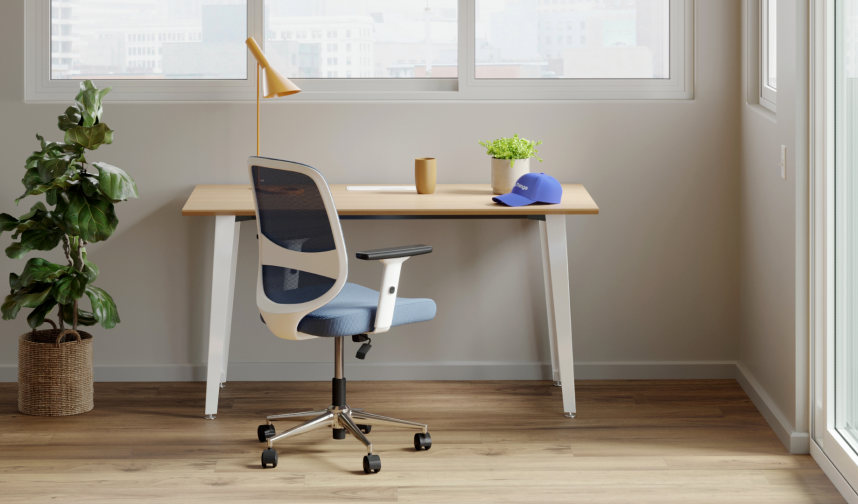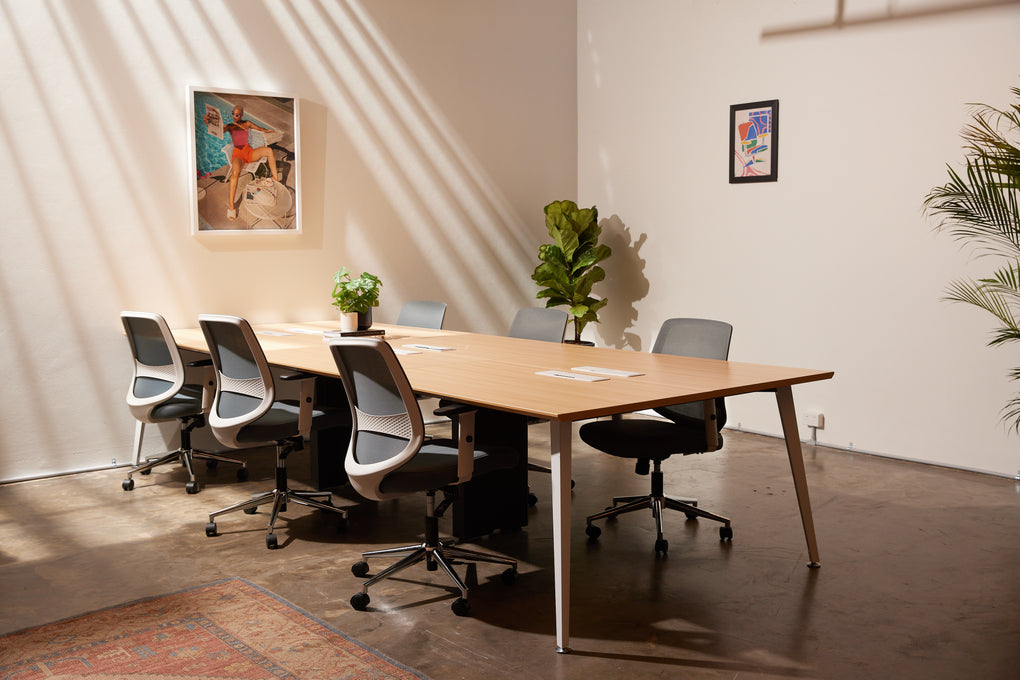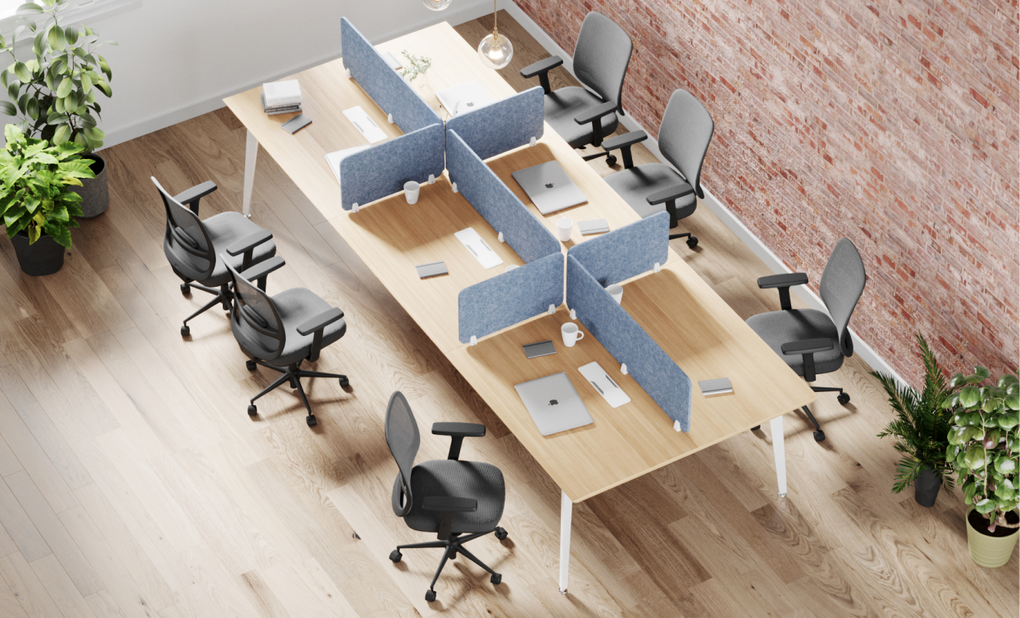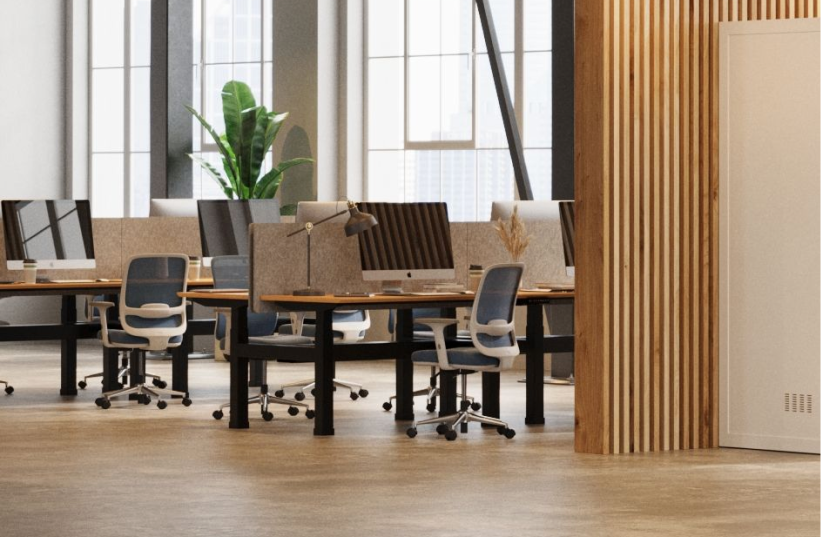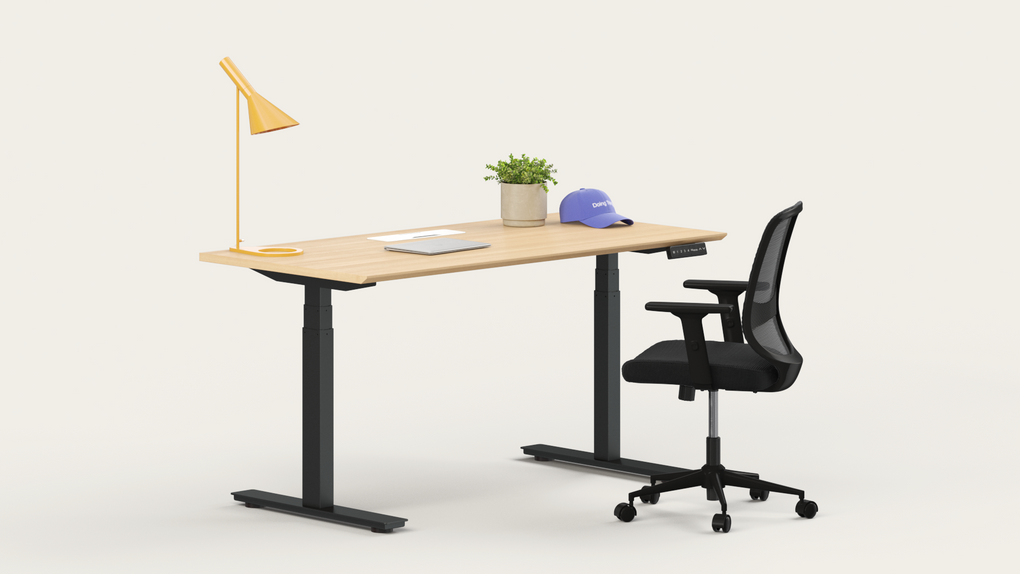5 Simple Ways to Make your WFH Office More Sustainable

Today, we sat down with out trusted copy of “Greeniology” by Tanya Ha to look for some fresh, but probably super obvious ways to keep our WFH office green! As we prepare to share these tips with you, we can easily envision the many ways these tips will come in handy once we all head back in to our usual office work environments as well.
1. Let’s start with the obvious staff - Paper products
Reasons to make a change
Production of paper from virgin wood can contribute to deforestation, habitat destruction, large water and energy use, it is also bleached, contributing chemicals to our waterways. See our previous blog post here which goes into detail about this!
Actions to take
A. Reduce use: go electronic with your in-house and external communications. Print when needed, but do it double sided. You can even link your fax machine to the computer to receive faxes electronically!
B. Reuse: use the blank page of single-sided printed documents as note/draft paper, or even to print on where possible.
C. Purchasing power: buy 100% post-consumer waste recycled paper (look for the FSC certified logo); this clever move will save 60% of water and 2.5 barrels of oil in the production process compared to regular paper products.
2. Office Equipment– think computers, faxes, printers, phones, scanners and such.
Reasons to make a change
A desktop computer used for 8 hours a day can generate 600kg of greenhouse gases each year.
Actions to take
A. Reduce use: put your computer in sleep mode rather than using a screen saver (screen savers are there to prevent the monitor screen from being ‘burnt’ with a static image, rather than to save energy), go for a laptop rather than a desktop which uses 90% less energy,
B. Reuse: share the printer in a big office environment, rather than giving one to each desk,
C. Purchasing Power: let the ENERGY STAR standards guide your office equipment purchases, look for an ink jet printer which uses 95% less energy than laser printer, buy a paper ink jet fax machine rather than thermal fax.
3. Lights– Turn the bloody lights off people!
Reasons for change
Does anyone else get disproportionately angry seeing lights being left on in the big office buildings downtown overnight? Like whole floors? Surely, it’s not just us? It should come as no surprise that “The biggest environmental footprint in Sydney is caused by organisations, tenants and building owners leaving lights on at night” states WWF’s manager of low carbon future, Monica Richter. So, let’s make sure that our WFH offices don’t become a contributing factor as well!
Actions to take
A. Reduce use: ensure that you are turning your lights off when leaving the room. Or even better, not turning them on at all by taking advantage of natural light and choosing a room with plenty of morning light when working from home for the morning, and relocating to an afternoon lit room for the second half of the day. Ensure to wipe your globes every so often, as dust build up can reduce light output by 50%, making you reach for that dimmer nob.
B. Reuse: How would you feel about reusing that hot Australian sun and wind to not only bring you to the beach for a tan and a surf, but to also light your lights and keep your computer monitor on. It might be time to reconsider your electricity provider, and make the switch to someone who offers green energy plans, such as Powershop or Nectr.
C. Purchasing Power: replace all incandescent bulbs with compact fluorescent light bulbs, as they use 75% less energy. To top it off, these lights give best results when left on for longer periods of time such as 6 hours or more, making them the perfect fit for a big office. Getting into a DIY - paint your walls a lighter colour, as lighter colours reflect the sun creating a more well-lit room.
4. Kitchen – because whether we are at home or back in our noisy open plan office, we all need to eat!
Reasons for change
Your kitchen not only involves electricity, water, and waste management as sources of great impact, it is also the place that gives you the necessary sustenance to be your best and productive self during the day - the liquid courage to create those red hot TikTok videos right?
Actions to take
A. Reduce use: use the dishwasher, or wash up all the dishes used over the course of the day, in one go to reduce water waste. Also, that annoying water leak you’ve got going on with your old tap – yeah get that sorted! It’s not only annoying (unless of course you’ve got your very own soundproof booth from Nook), but it also wastes 20,000L of water a year!
B. Reuse: Eat leftovers from last night’s dinner, to avoid ordering food and thus minimising packaging and transportation costs. Knowing that you are relying on your dinner for tomorrow’s lunch might motivate you to cook more, too. Otherwise, actually take a break and wonder outside, sit down for a meal rather than getting takeaway, supporting a local business and reducing waste at the same time. If you are back in the big office, and need to order, look for others who are without a prepared lunch - ordering in as a big group reduces the transportation impact and is great for team building.
C: Purchasing power: it might be time to set up a compost bin. It’s easy to do and can be dropped off at any local community garden for their fertiliser, or maybe you’ve gotten into gardening yourself in the midst of Covid and would like to use it as fertiliser for your own herbs. If you’ve got a fancy coffee machine around, think about the new aluminium coffee pods, as the KeepCup of 2020. And how about reducing your red meat intake? And, we’ve all heard of beeswax instead of clingwrap…ok ok, we’ll stop trying to turn you into a hippy now.
5. Consider getting some professional advice:
- Buy Recycled Business Alliance is a not-for profit alliance of businesses with the aim to promote the purchasing and use of recycled content products. They offer a number of programs to help businesses find ways to use more recycled materials in their offices and industries.
- Zero Waste Network New Zealand is a network set up to guide people and businesses towards a more sustainable natural cycle, where all discarded materials are designed to become resources for others to use.
- Eco Buy is there to advise businesses, big and small, on establishing a green supply chain and incorporating more sustainable practices into their business.



